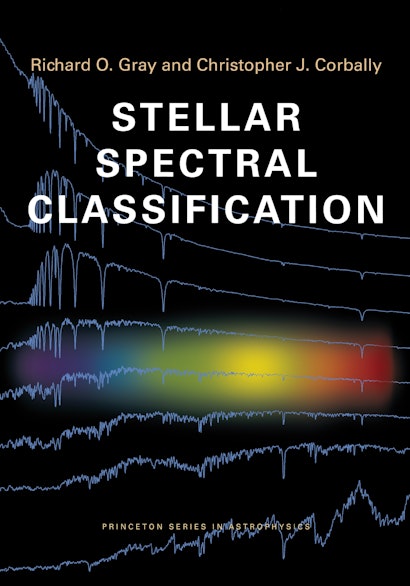Written by leading experts in the field, Stellar Spectral Classification is the only book to comprehensively discuss both the foundations and most up-to-date techniques of MK and other spectral classification systems. Definitive and encyclopedic, the book introduces the astrophysics of spectroscopy, reviews the entire field of stellar astronomy, and shows how the well-tested methods of spectral classification are a powerful discovery tool for graduate students and researchers working in astronomy and astrophysics.
The book begins with a historical survey, followed by chapters discussing the entire range of stellar phenomena, from brown dwarfs to supernovae. The authors account for advances in the field, including the addition of the L and T dwarf classes; the revision of the carbon star, Wolf-Rayet, and white dwarf classification schemes; and the application of neural nets to spectral classification. Copious figures illustrate the morphology of stellar spectra, and the book incorporates recent discoveries from earth-based and satellite data. Many examples of spectra are given in the red, ultraviolet, and infrared regions, as well as in the traditional blue-violet optical region, all of which are useful for researchers identifying stellar and galactic spectra. This essential reference includes a glossary, handy appendixes and tables, an index, and a Web-based resource of spectra.
In addition to the authors, the contributors are Adam J. Burgasser, Margaret M. Hanson, J. Davy Kirkpatrick, and Nolan R. Walborn.
Richard O. Gray is professor of astronomy at Appalachian State University. Christopher J. Corbally, SJ, is a vice director of the Vatican Observatory and adjunct associate professor of astronomy at the University of Arizona.
"Anyone interested in learning about the classification of stellar spectra will be well served if they begin by consulting a new book entitled Stellar Spectral Classification. Beautiful illustrations and examples are given at every turn. . . . We can confidently say that this is not only a superb text but is probably the most comprehensive single-volume text currently available on the fascinating subject of stellar spectral classification. A valuable resource for the astronomical community, it exudes authority. This is no surprise for the book's authors and contributors are amongst foremost authorities in this field. Summing up, we can say that our first look at this book made us really excited."—Current Engineering Practice
"A worthy descendant of Morgan and Keenan's foundational work, Stellar Spectral Classification fills a huge need by providing a spectacularly good discussion of stellar spectra. With a highly detailed and digital view of the modern art of classification that extends from the infrared through the optical to the ultraviolet, and includes full discussions of new cool classes L and T, there is not much on the subject that one cannot find in this well-written and richly illustrated volume."—James B. Kaler, author of Stars and their Spectra
"Want to learn about the classification of stellar spectra? You have the right book in your hands. These experts take us through the historical foundations, philosophical underpinnings, techniques, and criteria used to classify spectra. Beautiful illustrations and examples are given at every turn, and the encyclopedic material is useful for anyone involved in stellar spectroscopy, from the beginner to the more advanced practitioner."—David F. Gray, University of Western Ontario
"It has been about twenty years since the last book on spectral classification appeared. During that time, astronomers have switched from photographic detectors to electronic ones, and several new classes of stars have been discovered. This volume provides both an overview of the field and very detailed notes on individual spectral types. It should be required reading for both the students and the instructor in any graduate-level course on stellar astronomy."—Michael Richmond, Rochester Institute of Technology
"Major advances in spectral classification, especially the addition of the L and T classes, make the appearance of this definitive book timely and important. Useful on many levels, this guide covers all the relevant topics, is logically organized, and is a valuable resource for the astronomical community."—Richard Pogge, Ohio State University
"Stellar Spectral Classification is central to many areas of astrophysics and will gain even more importance in the coming future. This timely book addresses a wide audience, from undergraduate students to professional astronomers."—Alain Jorissen, Free University of Brussels

